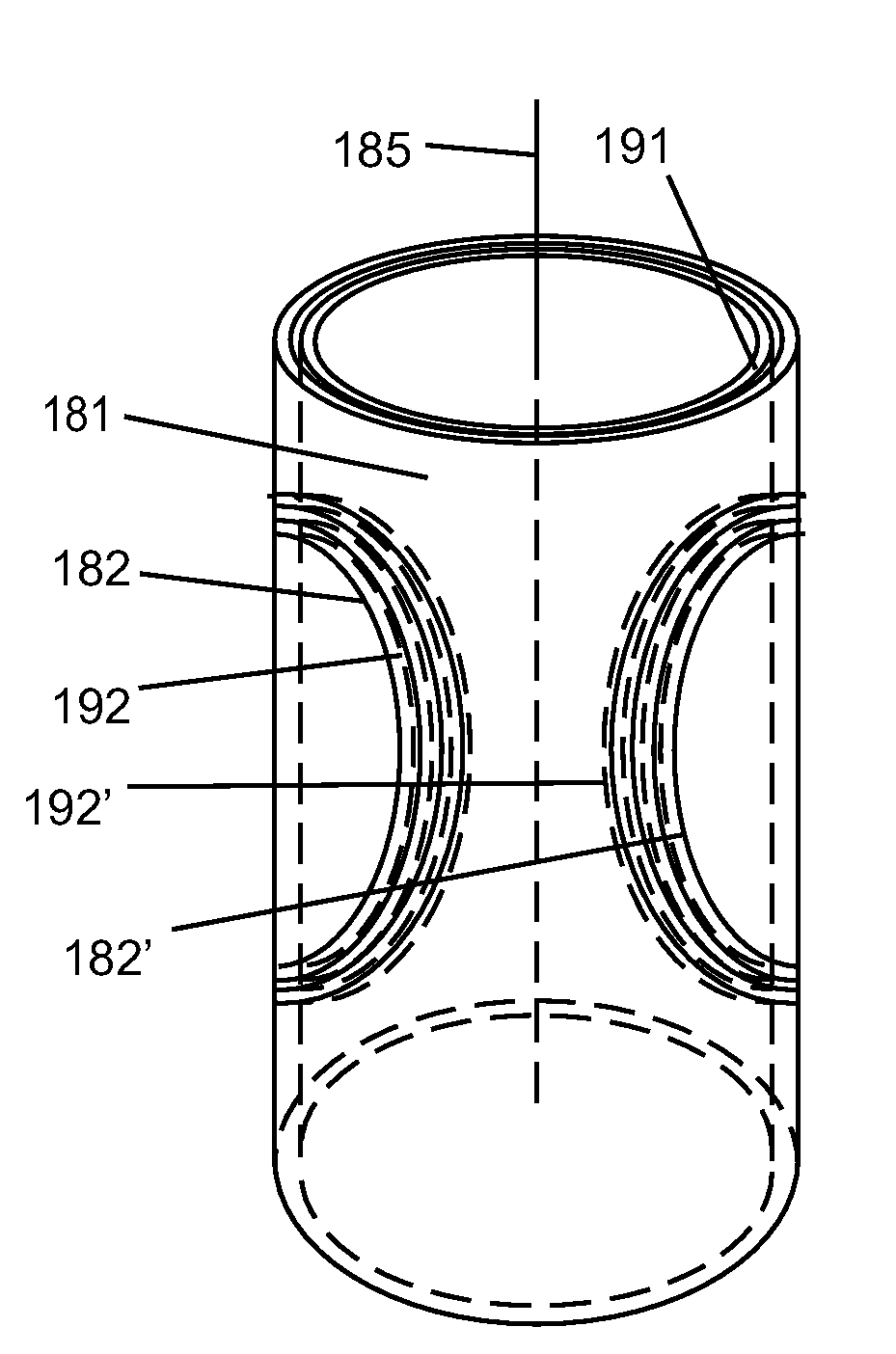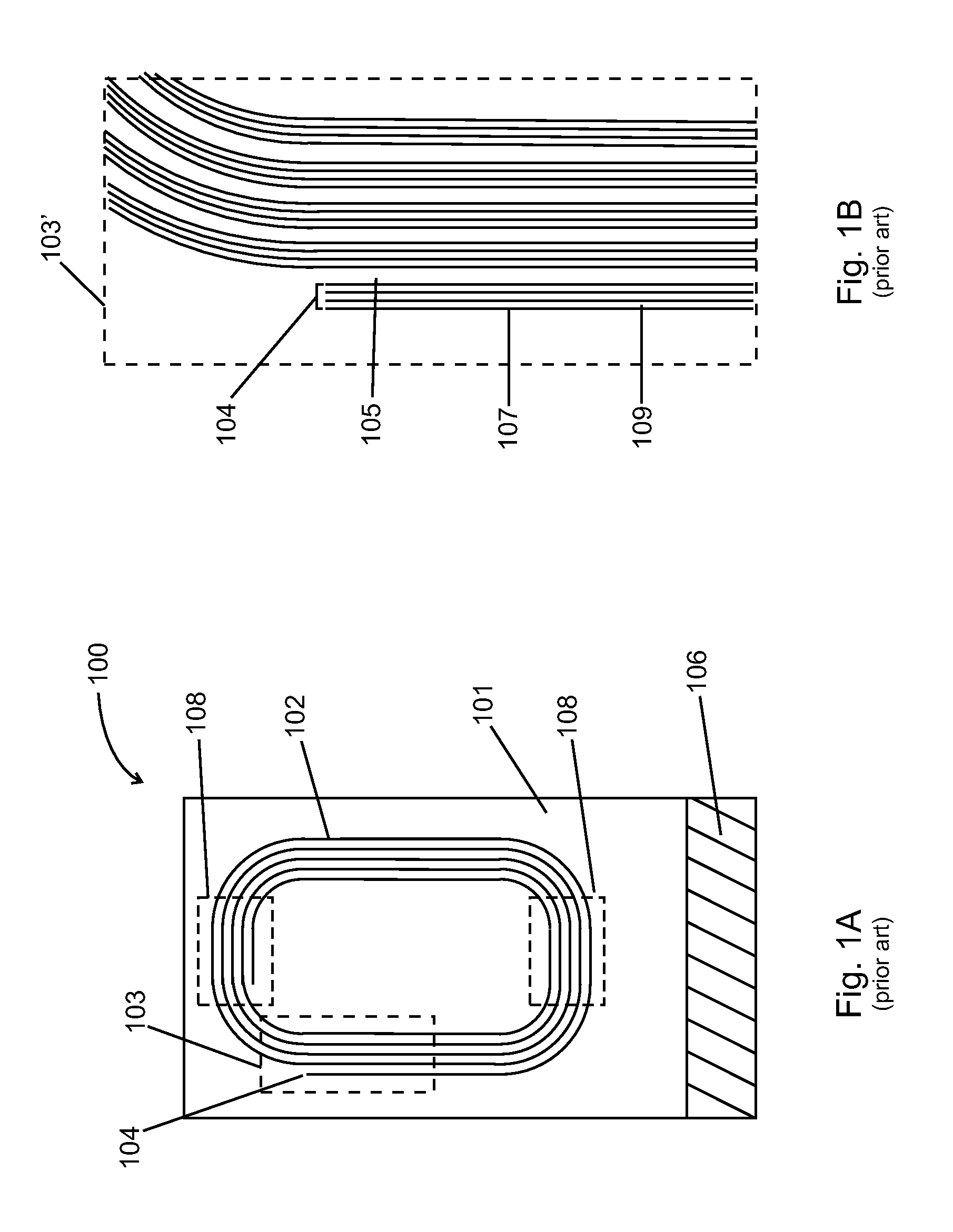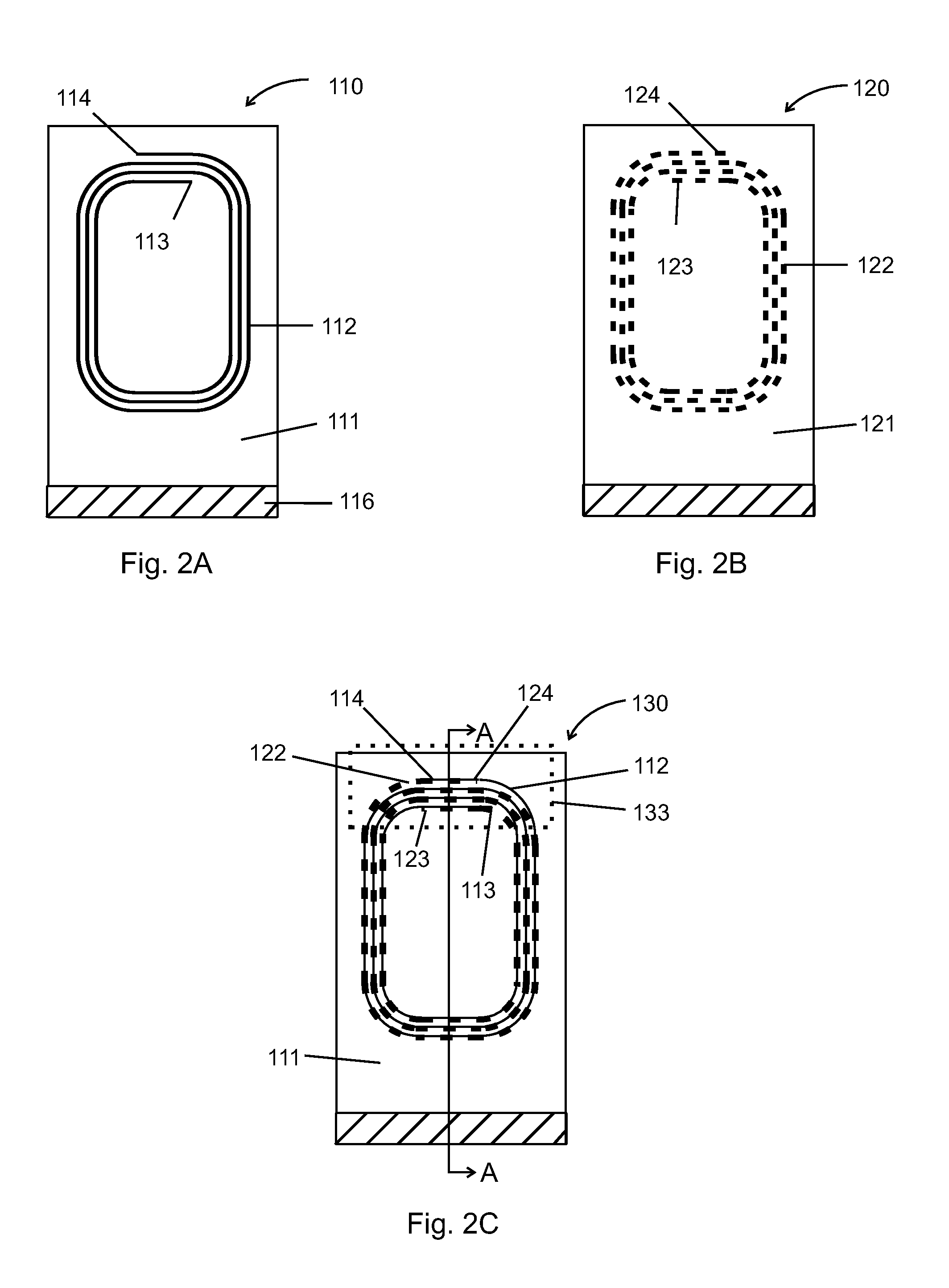NMR spiral RF probe coil pair with low external electric field
a technology of external electric field and probe coil, which is applied in the field of rf probe coil geometries, can solve problems such as destructive cut in this coil, and achieve the effect of minimizing the electric field and lowering the electric field components
- Summary
- Abstract
- Description
- Claims
- Application Information
AI Technical Summary
Benefits of technology
Problems solved by technology
Method used
Image
Examples
Embodiment Construction
[0029]In this work the embodiments are disclosed for HTS probe coils, cooled normal metal coils, and room temperature NMR probe coils. Contemporary HTS coils need to be cooled as they lose their superconducting properties at room temperature. The coils made of normal metal may be cooled or operated near room temperature.
[0030]FIG. 1A depicts a prior art HTS NMR probe coil assembly 100 that provides the RF field to the sample thereby stimulating the nuclear spins and then receiving the response of the nuclear spins in the sample. Typically the coil winding 102 is composed of a high temperature superconducting (HTS) material such as yttrium barium copper oxide (YBCO). The HTS material may be sputtered, evaporated, or otherwise deposited upon an electrically insulating planar substrate 101 such as sapphire. Typically the supporting substrate may be 400 micrometers thick and the HTS material 0.3 micrometers thick. Each turn of the coil may be composed of a number of parallel channels, o...
PUM
 Login to View More
Login to View More Abstract
Description
Claims
Application Information
 Login to View More
Login to View More - R&D
- Intellectual Property
- Life Sciences
- Materials
- Tech Scout
- Unparalleled Data Quality
- Higher Quality Content
- 60% Fewer Hallucinations
Browse by: Latest US Patents, China's latest patents, Technical Efficacy Thesaurus, Application Domain, Technology Topic, Popular Technical Reports.
© 2025 PatSnap. All rights reserved.Legal|Privacy policy|Modern Slavery Act Transparency Statement|Sitemap|About US| Contact US: help@patsnap.com



